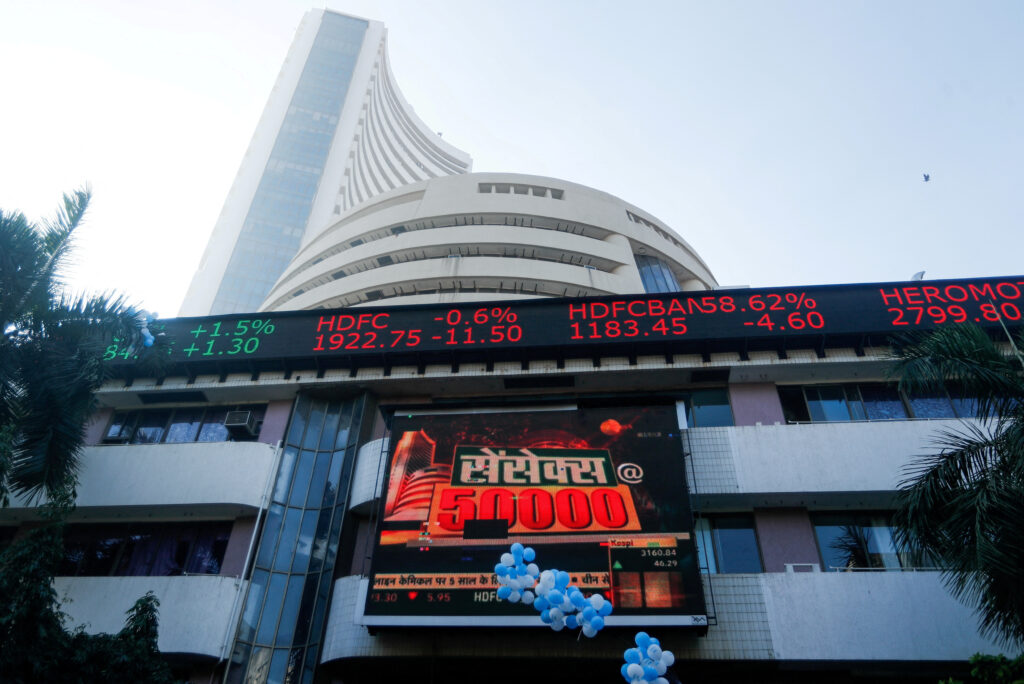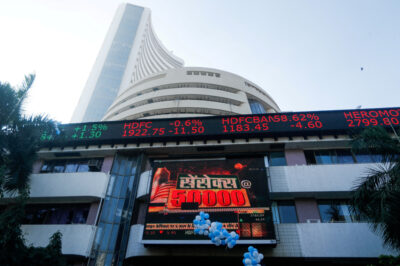
On April 7, 2025, India’s financial landscape experienced significant shifts influenced by global economic developments and domestic fiscal policies.
Stock Market Turmoil: Sensex Suffers Major Setback
The Bombay Stock Exchange’s Sensex plummeted by 2,227 points, marking its most substantial single-day decline in ten months. This downturn was primarily driven by escalating global trade tensions following the U.S. administration’s announcement of new tariffs on foreign imports, some reaching up to 50%. Investors reacted swiftly, leading to widespread sell-offs across global markets. Major European indices, including Germany’s DAX and the UK’s FTSE, experienced declines of 5.3% and 4.1%, respectively.
Government Raises Excise Duty on Petrol and Diesel
In a move to bolster government revenues, the Indian government increased the excise duty on petrol and diesel by ₹2 per litre each. This adjustment raised the excise duty on petrol to ₹13 per litre and diesel to ₹10 per litre. However, the government assured consumers that this hike would not translate into higher retail prices at fuel stations. The increased excise duty is expected to be offset by reductions resulting from a fall in international oil prices, ensuring that retail prices remain unchanged.
LPG Cylinder Prices to Rise Amidst Fiscal Adjustments
Alongside the excise duty hike on fuels, the government announced an increase in the price of liquefied petroleum gas (LPG) cylinders by ₹50 each. This adjustment aims to align domestic LPG prices with global market trends and manage fiscal pressures. The decision has sparked discussions about its impact on household budgets, especially considering the essential nature of LPG for cooking in many Indian households.
Government’s Assurance on Fuel Price Stability
Addressing concerns over potential price hikes, the Ministry of Petroleum and Natural Gas clarified that the recent increase in excise duty would not affect the retail selling prices of petrol and diesel. The government emphasized that any changes in taxes would be neutralized by corresponding adjustments due to fluctuations in international oil prices. Public Sector Undertaking (PSU) Oil Marketing Companies have confirmed that there will be no increase in retail prices following the excise duty hike.
Impact of Global Trade Tensions on Domestic Markets
The announcement of new U.S. tariffs has not only affected global markets but also had a pronounced impact on domestic sectors. Indian indices such as the Nifty 50 experienced significant declines, with the Nifty 50 dropping 3.24% to 22,161.1. All 13 major Indian sectors declined, notably IT (–2.5%), metals (–6.75%), and financials (–3.5%). Major stocks like HDFC Bank, ICICI Bank, and Reliance Industries fell about 3.5% each. Analysts attribute the selloff to investor fears over prolonged trade wars and shrinking global liquidity, with concerns that India’s GDP growth could be impacted.
Strategic Fiscal Measures Amidst Economic Challenges
The government’s fiscal decisions, including the increase in excise duties and adjustments in LPG prices, reflect a strategic approach to managing economic challenges. By adjusting taxes and absorbing certain costs, the government aims to stabilize domestic markets and shield consumers from global economic fluctuations. However, these measures also highlight the delicate balance policymakers must maintain between fiscal responsibility and consumer welfare.
Looking Ahead: Navigating Economic Headwinds
As global trade tensions persist and domestic fiscal policies evolve, both investors and consumers face a complex economic environment. The stock market’s volatility underscores the need for cautious investment strategies, while changes in fuel and LPG prices necessitate budgetary adjustments for households. Staying informed and agile will be crucial for navigating the evolving economic landscape in the coming months.








































Leave a Reply